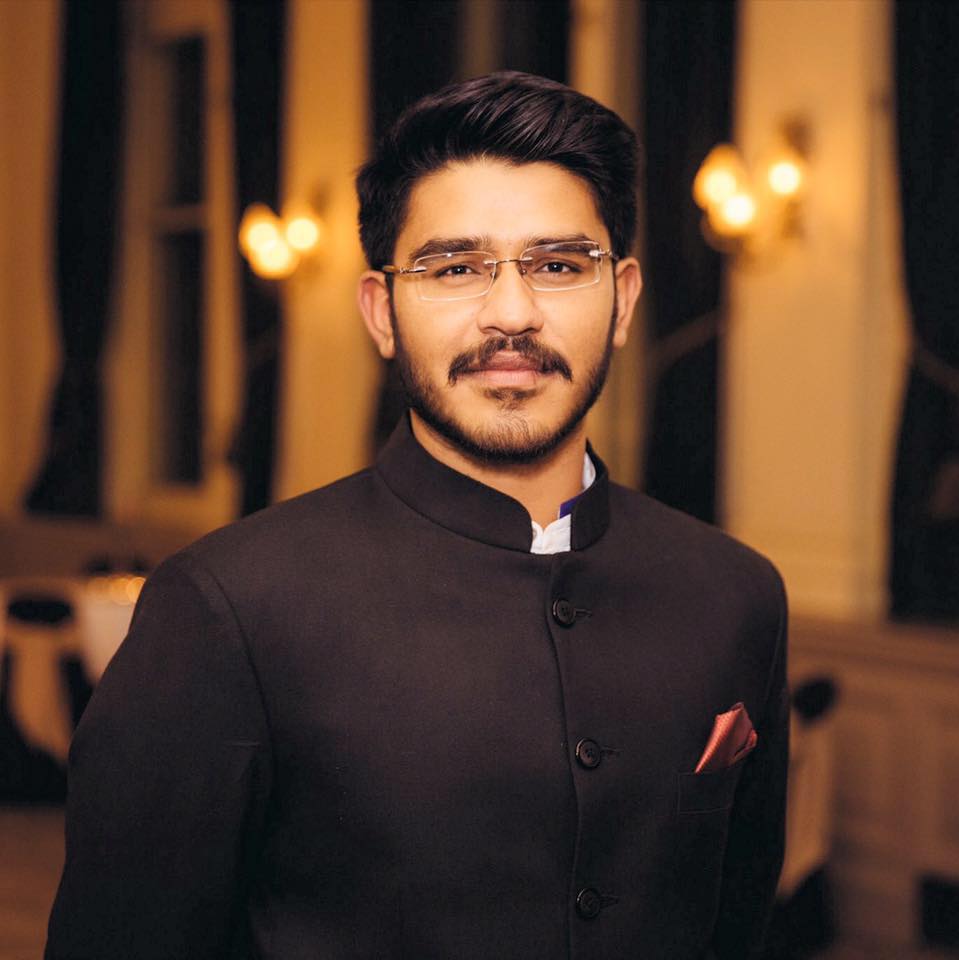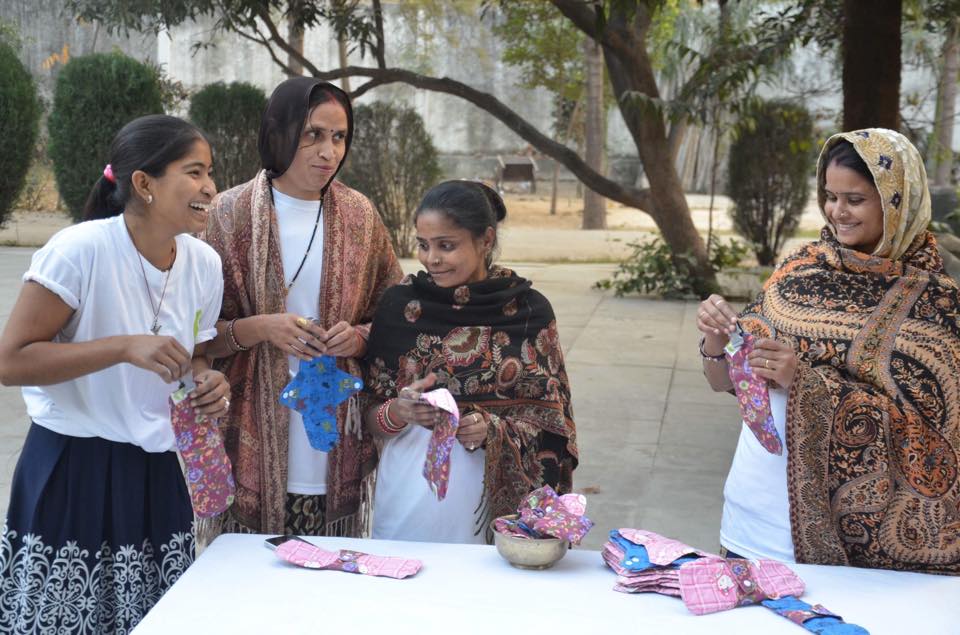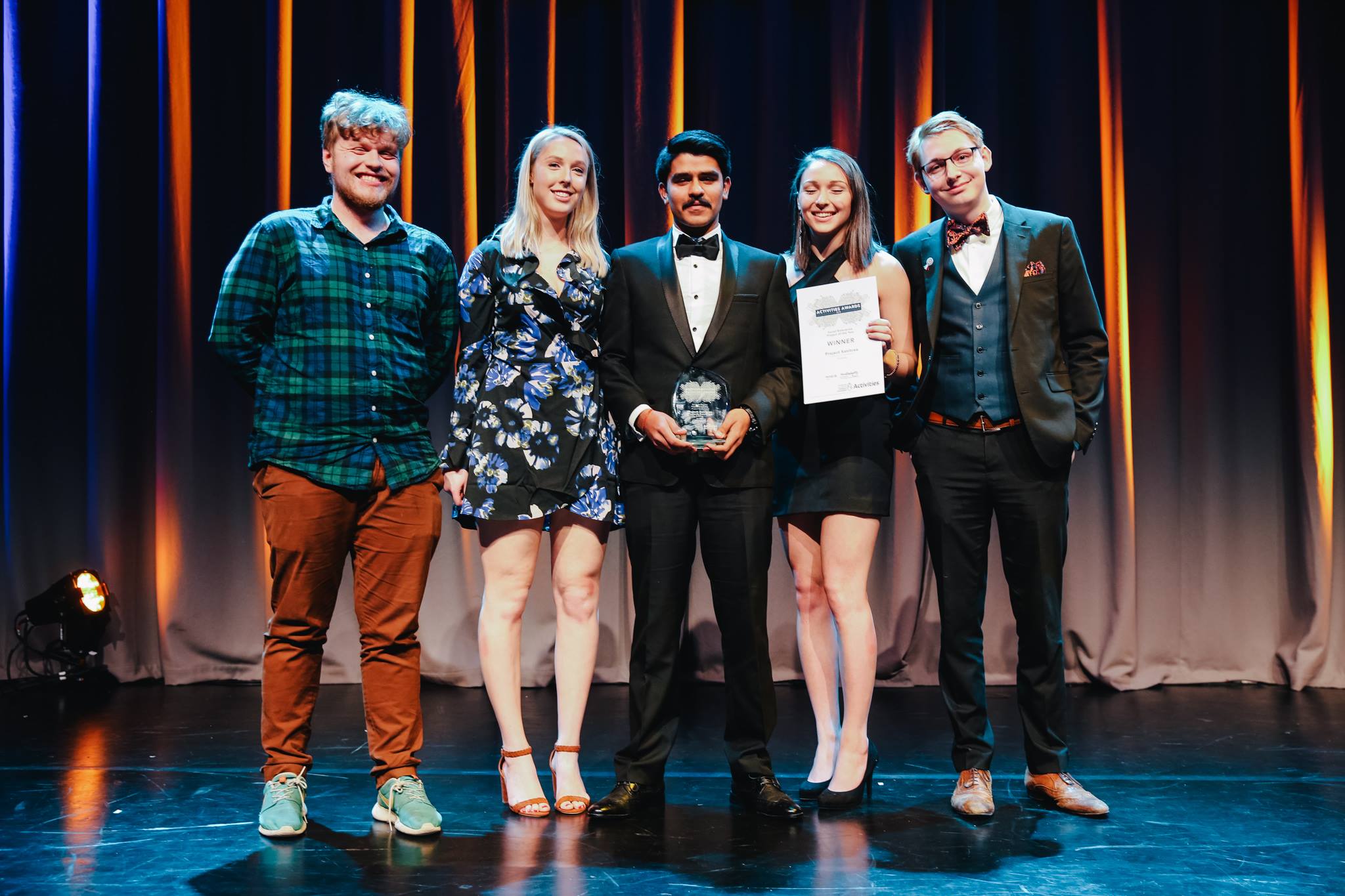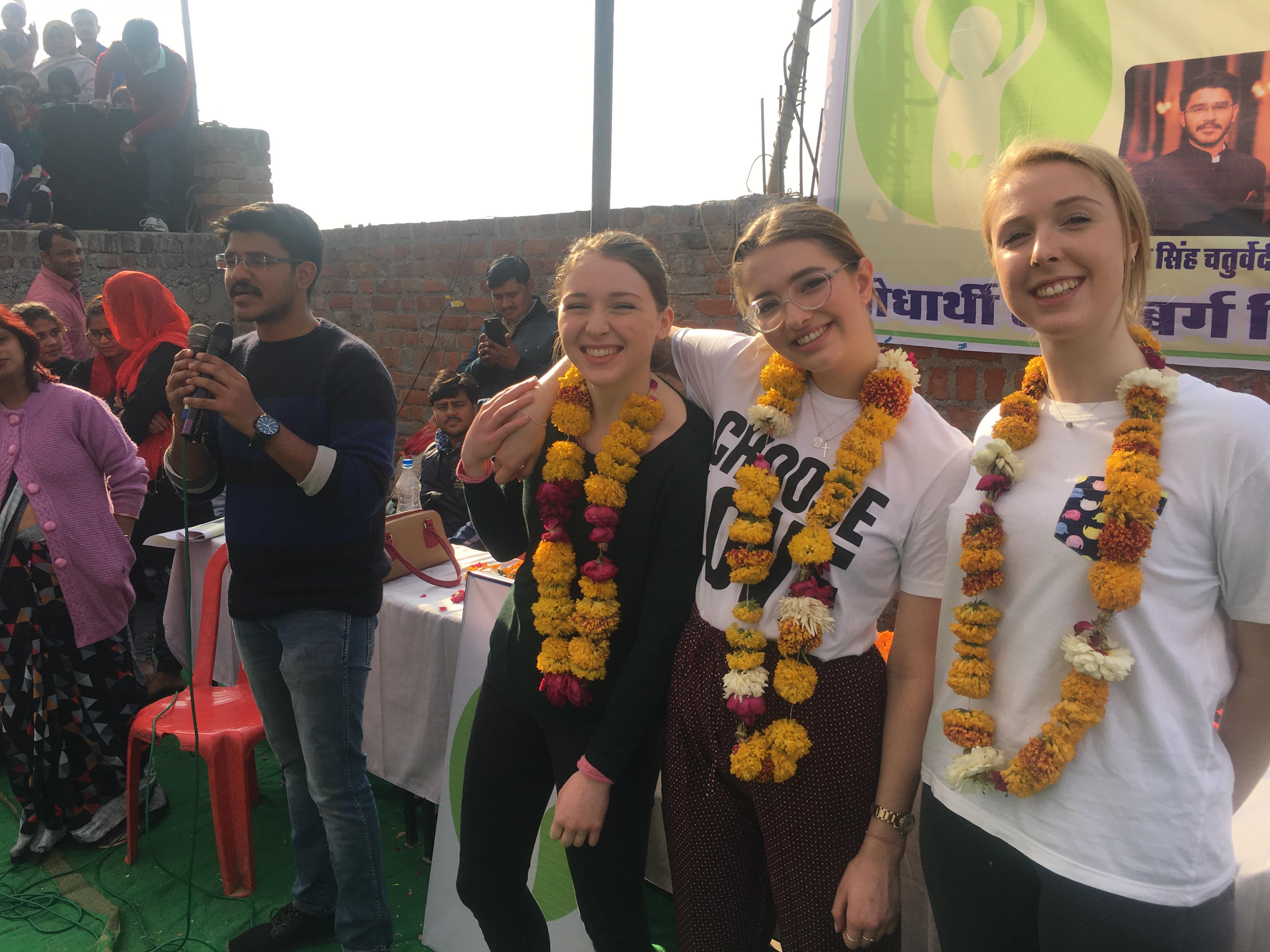Interview by Akanksha Sharma
Hi Bharat! Please introduce yourself to the readers of Indspire Me.
Hello! My name is Bharat Singh Chaturvedi and I am currently reading Economics and Politics at the University of Edinburgh. Being born in a town called Bhind, in the state of Madhya Pradesh, India, I share a strong, unbreakable bond with the place and my people. Before coming to the United Kingdom, I was in Bhopal to complete my school level education. This is where I developed a keen interest in horse riding and lawn tennis, along with political philosophy and Indian politics.
Coming this far from home, I have understood the importance of circumstances we either ignore or take for granted in our communities.

Learning from these realisations and having strong roots in Bhind, in future, I aspire to go back and use my efforts and resources towards writing a new script for the district. I believe to break the age-old silence around the natural process of menstruation, it is essential to identify, introspect upon and address the crucial problems of our community. It is prime time for rural India, especially Bhind, to make the transition towards an equal and a more dignified future. In this, Sanitree is a dialogue!
What’s your project, Sanitree, all about?
Females in Bhind, India, a place where people still think that women bleed because God is punishing them for being females, require support. The stigma and lack of understanding results in girls missing out on as much as 25% of their education or dropping out altogether. Thousands of females in Bhind cannot afford sanitary napkins, mainly because they’re manufactured using expensive machinery and thus are priced at a premium.
Such women resort to unhygienic, older and cheaper alternative – a piece of cloth or rag. When menstruation is considered shameful, the conversation remains in a hushed whisper. Sadly, that means that irregular patterns of menstruation and menstrual infections often go unnoticed. Shame is easy to internalise and is inevitably passed on through the generations. So, we’re having the conversation out in the open. Tackling the misogyny, orthodoxy and the traditionalist thinking of people linking menstruation to religion will always be a challenge.
We aim to challenge this stigma by providing affordable and reusable sanitary pads with the right knowledge about menstruation.
Sanitree provides local unemployed women with the skills and finances to run a reusable sanitary pad manufacturing cooperative. Our beneficiaries will act as ambassadors to deliver the right knowledge about menstruation in the local communities.
We offer livelihood, hygiene, dignity and empowerment to women in Bhind and rural India, through an environmentally sustainable approach. Period stigma is rooted in misogyny. But menstruation is an experience that transcends culture, class and caste. It is a human experience, and if nothing else, deserves at least to be understood in biological terms. It is vital to us that the information and education are passed on in a culturally-sensitive, positive manner.
In scaling over summer, we plan to establish a fantastic community to rally behind our cause, including government workers, local business owners, community leaders, activists, educators and students.
We understand that it is not much use if menstrual education comes from an outsider either; hence, we aim to deliver our workshops in collaboration with community leaders and local experts in biology.
We are working on developing an educational model that can be implemented in the local schools and we aim to complete it by November and implement it by December 2018. To address this, we are working on animations, presentations, information handouts and designing a comic book which can be distributed in the local schools so that the younger children gain the knowledge in a positive manner.
How is Sanitree different from similar projects in India?
As menstruation is an experience that transcends culture, class and caste, we see an extraordinary opportunity to advance social transformation and ecological awareness through every step of this project. We seek to create a truly holistic approach to menstruation through integrating ethical practices, sustainable production processes that engage rural women from Bhind and other communities as producers and spreading culturally sensitive, life-affirming education about the menstrual experience.
Our project aims to establish more community-owned micro-enterprises, which would make and sell reusable sanitary pads at 30% the cost of commercial alternatives.
In addition, this is a long-term solution to the problem of affordability that exists as each pad lasts approximately 2 years. We share the vision of a ‘Green India’, and in the wake of the Green India Mission’s launch in 2014, we hope to support the country and society to advance and become less dependent on single-use, disposable products.
Why did you choose Bhind as the launch location for this project?
The district, once at the bottom of the sex ratio not only in the country but also in Asia, is now writing a new script. We aim to tackle the stigma around menstruation through right education and providing an affordable solution. To give you a bit of background on the project. After understanding my position as a student here at the University of Edinburgh and the impact our work can have on our larger home communities – I decided on working on Sanitree. We aim to provide an affordable and sustainable solution along with proper education to end the stigma around menstruation.

In this, Simply by googling Bhind and switching to the news tab, you can understand how essential and real this initiative is for the rural Indian community and largely to the entirety of the developing world.
Being a member of the community and having spent my early years there coupled with having the privilege of an international education motivates me to always keep my place and people in mind. If not me, then who?
What have been the big wins for you, after starting Sanitree, thus far?
After starting Sanitree, the biggest win has been the love of people we have received from our community. It has been incredible and very heart-warming! The happiness one gets when people of all ages and gender can understand how natural the process is, is unmeasurable.
In terms of specific awards and recognitions: we won the Social Enterprise of the Year and Student Sustainability Award this year by the university. Alongside, a member of the Scottish Parliament has put forward a motion in the parliament to acknowledge our effort – we can see further developments in that front in future. I have been personally selected to represent the idea at the Clinton Global Initiative University (CGI U) this year in October. We have been building momentum around the universities in the UK to see if a branch or something similar to Sanitree can be started in the universities here – students through collaboration can achieve a lot!

What are the challenges of working with a small community?
There are a number of challenges, but if it is your own community and you have the motivation then you gather the zeal to trot through them. The most important one is having proper knowledge about the community. I believe the first idea was to ensure that we are adopting a culturally sensitive approach. You need to work closely with the people to develop an understanding of their thought process and to ensure that you are aware and informed.
Second, is to ensure that people are comfortable with the work assigned to them. Often, plans made on tables in closed doors don’t stand in reality. Therefore, it becomes important to be adaptive and have other plans in mind to suit the surroundings.
In this, the team should be ready to adapt as well. In terms of logistics, finding the right time and resources to ensure that your basic material can be available. This requires prior checks and developments accordingly. Largely, if in all the chaos you can find the peace to keep working, the challenges seem short.

How do you plan to sustain Sanitree in the future?
Through education and enterprise, we seek to provide the support required during the critical age for a young girl. With a better understanding of menstrual health breaking down social stigmas, the better educated young girls can grow to become valued and respected contributing members of their societies. In short term, we aim to conduct a proper needs assessment to identify the community we would scale and expand to.
Alongside, attaining a positive, appropriate education model will be a priority. In the long term, we are working towards entering the online market to ship the pads worldwide and establish a ‘Pad for Pad’ programme. In this, we shall monitor the dropout rates in the local schools before and after implementation. We shall also work closely with the district healthcare offices to keep a track of the data around health concerns due to unhygienic menstrual practices and strategize to address these issues in cooperation. In future, the priority is to develop a near efficient model of Sanitree in terms of depth and then align as a CSR initiative of an MNC to ease the expansion in terms of breath.
Please share a message with all those people who are desirous of creating social change. How can they get started?
My advice to people who are willing to create a social change is to find a ground that is closer to your heart, be a part of the culture that you want to work with and all else will follow. In this, the success largely depends on your personal efforts. This path demands showing up, being engaged and a hands-on commitment.
Editorial Note: If you liked this interview, and would want to be inspired by more such awesome goodness, then head on over to our section on Inspiring Interviews.